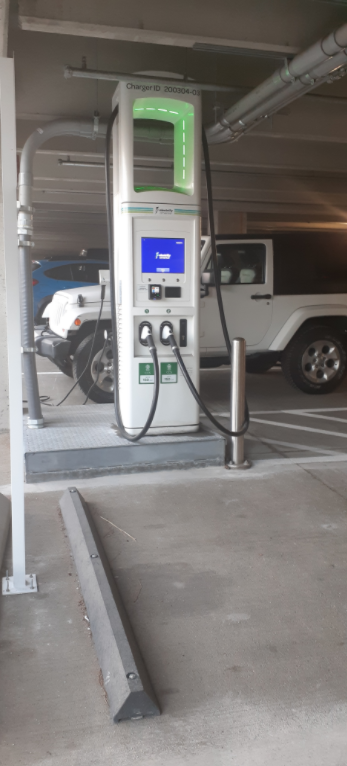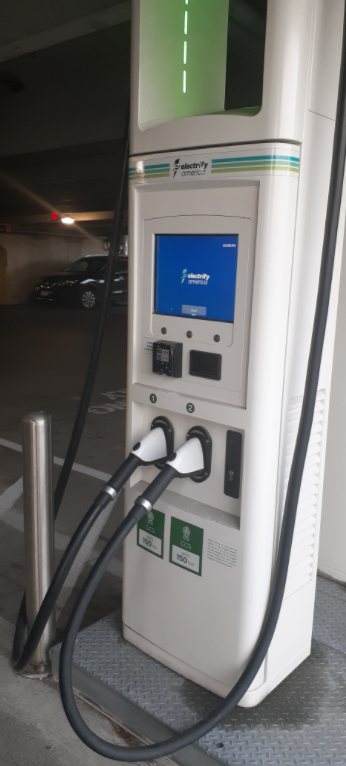
EV Charging Station 2 Photo taken by Chrstipher McIntyre
The whole world is moving towards a more sustainable future. Malden is a part of this now, issuing 22 new electric charging stations to charge electric vehicles as a movement forward to combat climate change.
There are already electric charging stations in nearby cities such as Saugus, Somerville and even Revere. Thanks to the help of National Grid, Eric Ruben and Dave Camell, these stations across the city are a part of an initiative to reduce carbon emissions and promote sustainability. Statewide there has been a transition to a greener future through MOR-EV, a program offering rebates to EV drivers. There are incentives in Massachusetts available only to EV drivers, among these are $7,500 in federal tax credits, grants for fleets and grants for workplace charging.
There are many benefits to owning an electric vehicle: improved torque, better connection digitally, and diverse fuel sources. The U.S used nine billion barrels of petroleum in 2019, 66% of which went towards transportation. Relying on gas makes the population vulnerable to price spikes and supply interruptions, electric vehicles will be able to reduce this because almost all electricity supplied from the U.S. comes from domestic sources. Not only will moving towards EVs help the economy, but EVs minimize emissions that contribute to climate change, smog and ecological damage. As of 2017, the amount of plug-in vehicle registrations per 1000 people in Massachusetts was 1.97, almost doubling what it was in 2016.
We can see the world move forward with these changes through Japan’s mid-2030 ban on gas cars, EU’s plan to end combustion engines in 2025 and the increasing stock in Tesla. In a race to the greenest country, we can see the global leaders competing with each other to start the global trend. President-elect Joe Biden’s plan for making the American-auto industry is to transition into new energy vehicles. UAE set up a national rail system in hopes for the country’s green ambitions, the 746-mile rail network could save 2.2 million metric tons of greenhouse gas emissions annually. Hydrogen powered trains could replace conventional diesel engines in Germany, to make an emission free propulsion system.
Cities all around the world are creating financial and non-financial incentives to get an EV. The financial incentives already put in place are rebates or tax credits on vehicles, discounted tolls and fares, discounts on recharging equipment and exemption from vehicle registration taxes and license fees. Non financial incentives that have already been applied consist of preferential parking, access to restricted highway lanes and expedited installation of EV equipment. EVs are looking to become mainstream and hit 28% of global passenger vehicle sales by 2030.





